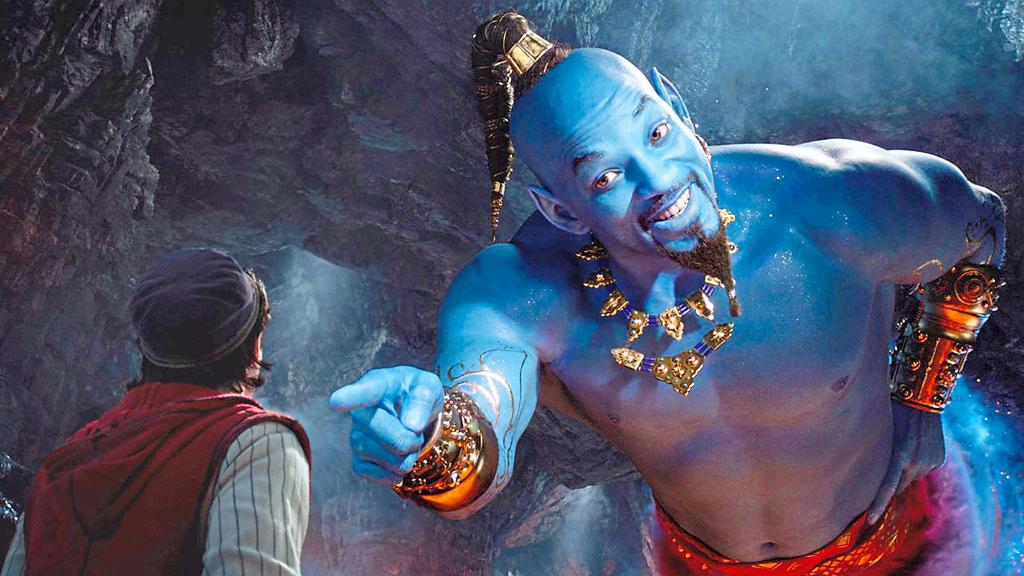The Aladdin controversy

Free interpretation of the Aladdin story is something of a tradition: according to present understanding, the original source of the tale is not Arabic at all, but French. It dates back to 1712 and appears in the ninth volume of "Les mille et une nuit", the first translation of The Thousand and One Nights into French by Antoine Galland.
The tale of Aladdin is one of the texts in The Thousand and One Nights for which no Arabic-language original exists. According to an entry in Gallandʹs diary from 1709, he was told the story of Aladdin in Paris by a Maronite Christian from Aleppo. The current, published version of the story is also the length of a short novel. This poses the question as to how much fleshing out of the story was done by Galland himself.
Some literary scholars are convinced that a number of European fairy tale motifs have crept into the storyʹs Arabian heart. In any case, it is clear that the story was a hybrid of sorts, a literary bastard, as early as its first appearance in Paris in 1712. It is therefore pointless to judge its later adaptations, translations and dramatisations for their fidelity to the original, its location or environment, let alone the message of any of its authors.
In turn, however, this proves that Disney Studios have dealt with the tale of Aladdin in precisely the same way as it has always been dealt with. If ever a story were free, unbound by copyright, open to plagiarisms of any kind, this is it. There is practically no medium or genre into which Aladdin has not been shoehorned in the past three hundred years.
Between plagiarism, parody and free adaptation
The nineteenth century, believe it or not, produced thirteen Aladdin operas: seven German, two French, two English, one Italian and one Danish. The animated 1992 Disney film and now the live-action version are just the latest updates to this hybrid tale, where it is no longer possible to distinguish between plagiarism, parody and free adaptation. How are we to judge such a story, if not by its – undeniable – (massive) success?
We have always known that the Oriental fairy tales were marketable light fiction and this is why Galland, the true creator of The Thousand and One Nights, went on collecting more oral Arabian tales when the manuscripts – which he had brought with him from his travels in the Orient (including an Arab text of the same name) – ran out. The learned Arabs of the Middle Ages looked down on these and other folk tales, just as the intelligentsia look down on the Disney film today.
Nevertheless, the influential Council on American-Islamic Relations (CAIR) recently issued a warning against the film, explaining that the story is deeply rooted in racism, orientalism and Islamophobia.
This, despite the fact that the makers of the film have taken great pains to avoid the racist stereotypes that were evident in the 1992 animated version. There are no longer explicit references to Islam, apart from the fact that the locations are obviously based on Islamic architecture. The numerous towers call to mind minarets, the Sultanʹs Palace resembles the Hagia Sophia.
The Orient as a place of longing
But is this bad per se, or simply negative in its implications? Indeed, this fanciful Orient presents a foreign, different, exotic world. But it is not one that we fear, one towards which we experience a kind of (Islamo-)phobia; on the contrary, it is a place we desire. Otherwise tour operators would not be able to advertise locations which call the film to mind and Disney would be unable to satisfy the escapist fantasies of cinema-goers worldwide. The Orient is and remains a place of longing – at least for the West. And this is not a negative attitude by any stretch of the imagination.
Besides, the new film is so overblown that it is no longer merely cliched, it is a humorous parody of the Orientalist cliche itself. In the new film, this is clear from the fact that the actors are not only playing their own roles, they are also playing themselves: take, for example, Will Smith as the rapping genie in the bottle.

Whatʹs more, Aladdin is not only the hero of the story, he is a hero whose name makes him unmistakeably Muslim and Arabian. Even if he is imbued with all the behaviours of a white American youth, as the critics say, he remains the hero of a fictional world in which no-one is above Arabs and Muslims. Any attempt to use the story for racist ends, therefore, quickly bumps up against its limits.
Touching on a sore point
Nevertheless, CAIRʹs criticism does touch on a sore point by pointing out that the tale of Aladdin puts forward racist and Orientalist stereotypes in and of itself. According to the original version, Aladdin lives in China and the evil sorcerer, who in the film, unlike in Gallandʹs version, is fused with the evil Vizier, is African. There is unquestionably racism at the heart of this, as neither the Arabs nor the Europeans of the 18th century had a high opinion of black Africans. Nor do the Jews come off lightly in the original version.
The racism present in this, as in many old myths, is not specifically Western or Orientalist, but Arabian and Muslim in its nature too. We must therefore concede that there is racism in the Aladdin story, but also that this is not a particularity of Western culture, even if it one day emerges that the story is a mere invention on Gallandʹs part. After all, Arab and Islamic history exhibits enough racist misgivings and stereotypes relating to Africans and Jews, such as can also be found in those tales from The Thousand and One Nights that clearly have Arab origins.
The Aladdin film does not therefore seem to be the right occasion to point the finger of cultural criticism at Hollywood. Instead, we should be asking ourselves to what extent we have forfeited the ability to tolerate ambiguity, and what two decades of the War on Terror have done to us, if we view a film of this type as an occasion for soul-searching. As unpleasant as racism and stereotypes in art are, it nevertheless seems more sensible to fight the real racism that exists in everyday life than that found in fairy tales.
Stefan Weidner
© Qantara.de 2019
Translated from the German by Ayca Turkoglu
Stefan Weidner is an Islamic scholar. His book "1001 Books. The Literature of the Orient" is soon to be published in German by Edition Converso.
